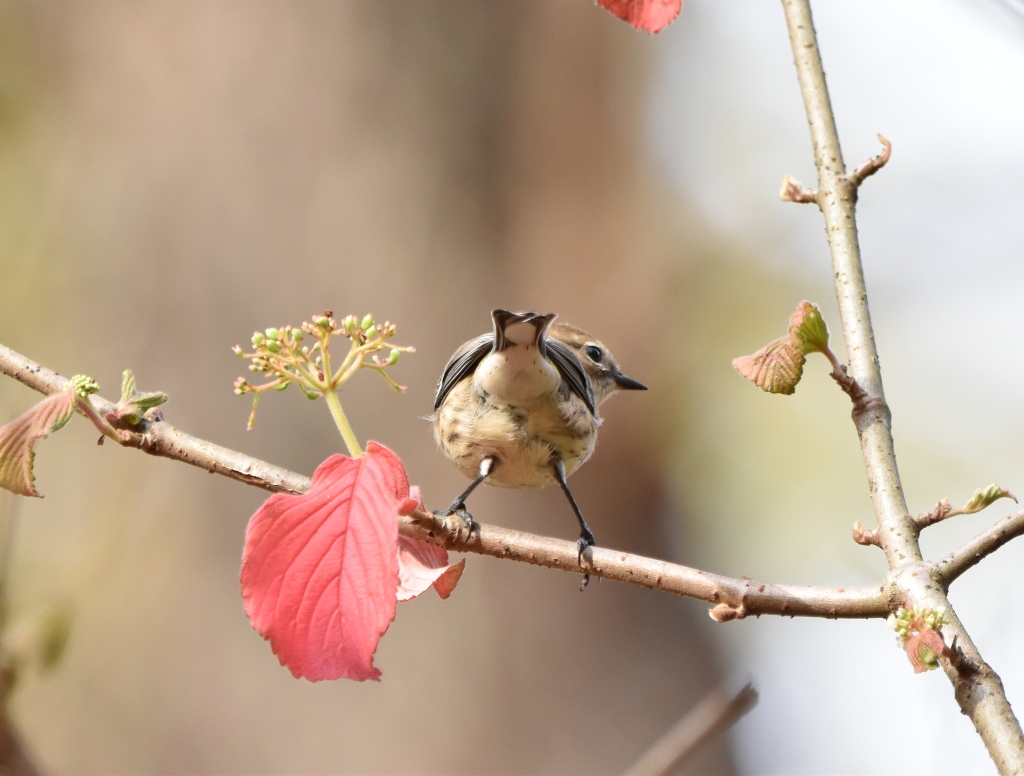
5 November 2023
Some days it seems like all the birds are turning their backs on us. Warbler season is especially challenging because they tend to pose just like the yellow-rumped warbler above. Fortunately The Warbler Guide by Tom Stephenson & Scott Whittle includes a butt-shot for every bird so if you take photographs you can look them up when you get home.
Most birds just happen to be facing away but others, like this hermit thrush, do it intentionally. The thrush was keeping an eye on us while he hid in the shadows with an escape route mapped out ahead of him.
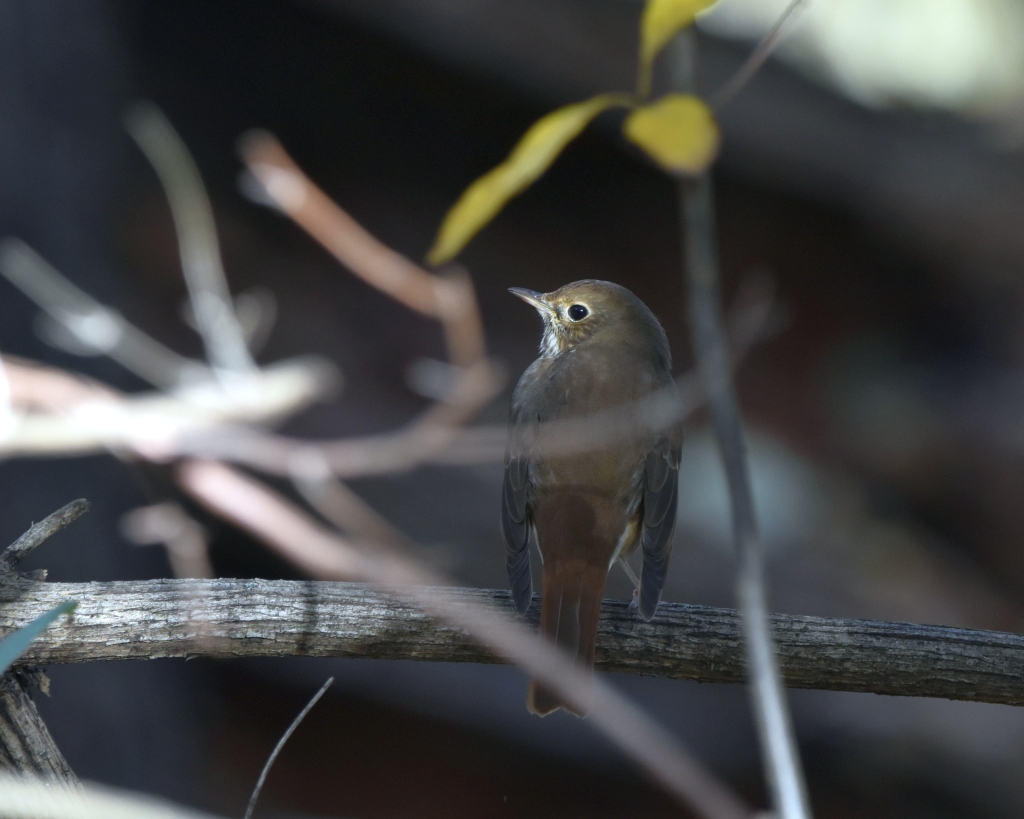
Kinglets face every which way as they busily flit to find tiny insects. Inevitably they end up in a butt shot.
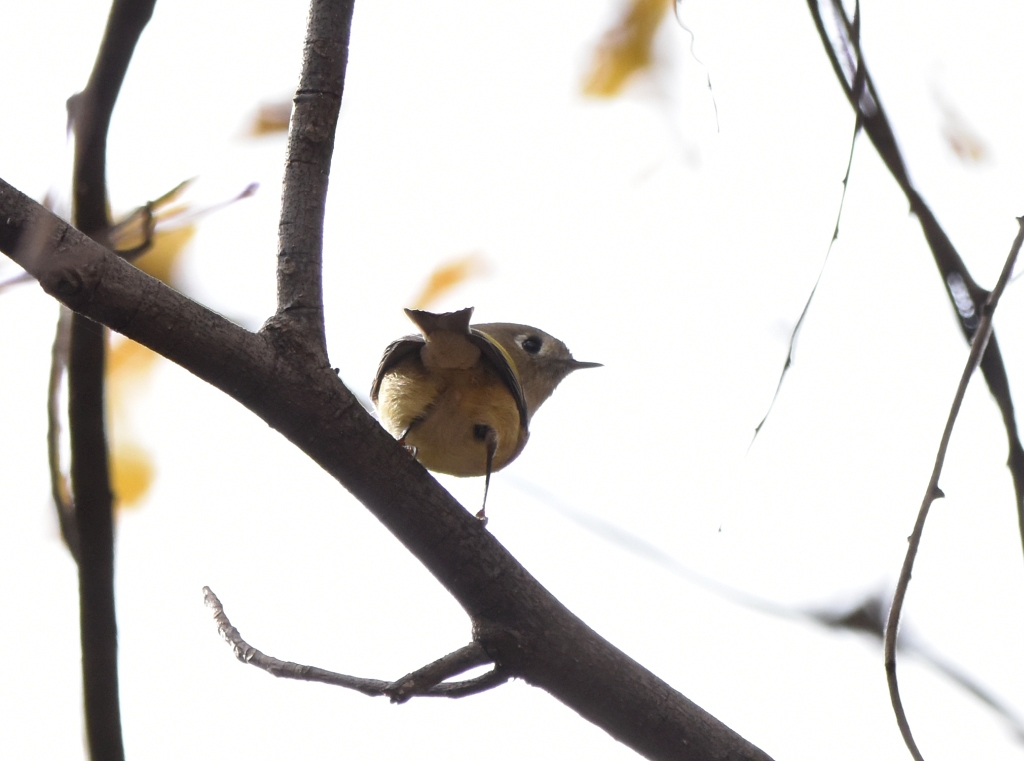
Sometimes we see a new feature of the bird from behind. This golden-crowned kinglet shows a bit of red at the back of his yellow crest …
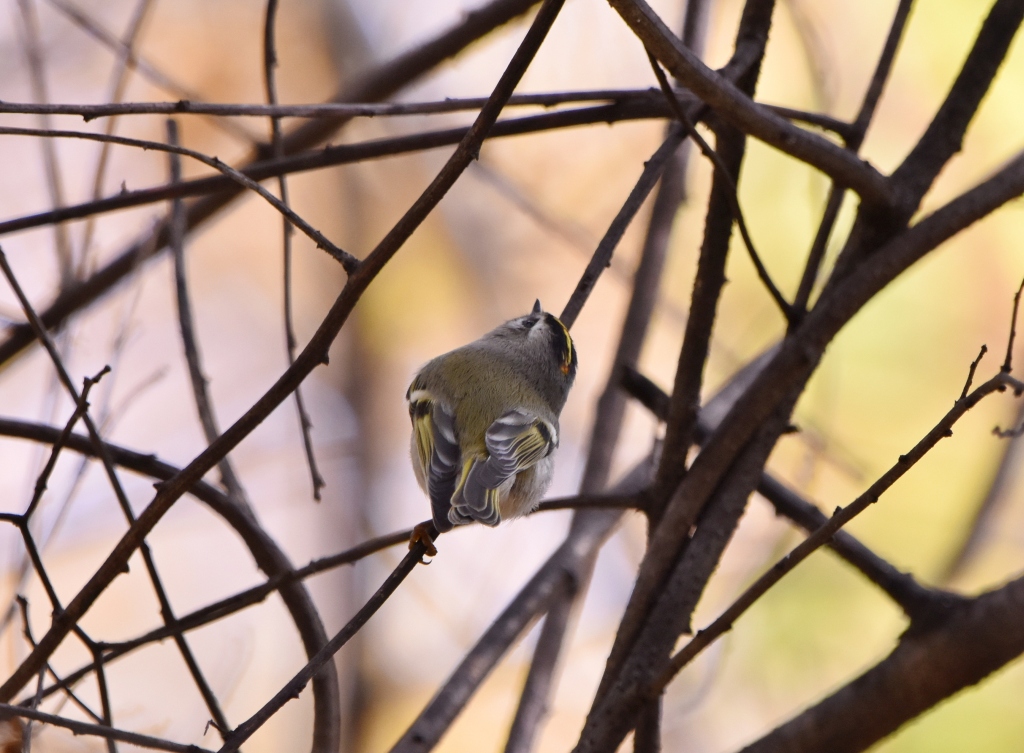
… as seen in this closeup.
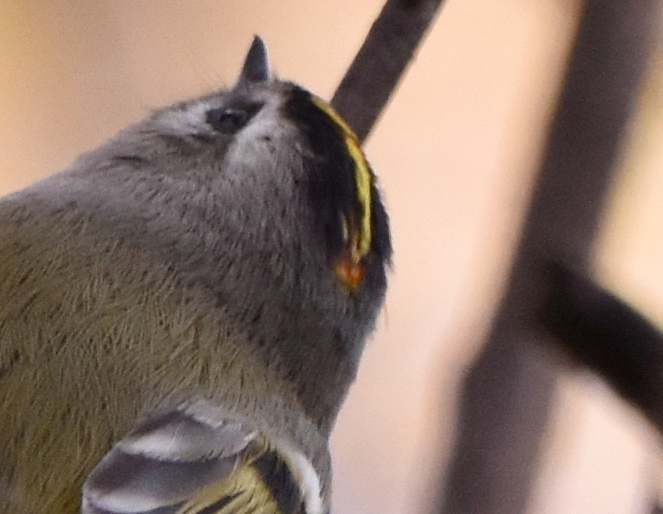
Surprisingly, some sparrows have faces on their back ends as seen in Wes Iversen’s photo of a fluffed up sparrow. Notice how the secondary wing feathers, back, and undertail coverts form eyes, nose and smiling mouth. The photograph is embedded from Wes Iversen’s original here on Flickr.
Check out more of Charity Kheshgi’s and Wes Iversen‘s photos at these links.
(credits and links in the captions)
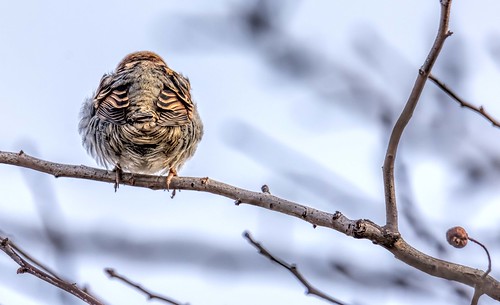
I love this article! I’ve often thought that there should be a book that identifies birds from the back, and now I know of one :-), at least for warblers. Thanks for always sharing such interesting points of view on our natural world!